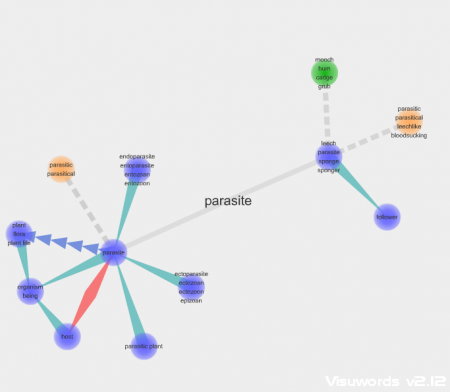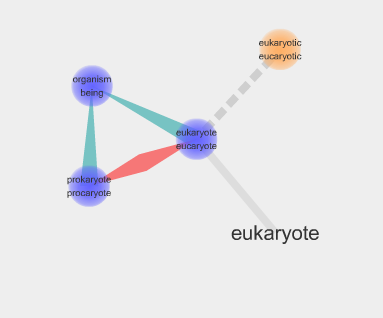
This image, bouncing around the internet, is, unfortunately, a fake. However, it’s still a nice supplement to Eats, Shoots and Leaves when talking about the power of punctuation.
Middle and High School … from a Montessori Point of View

This image, bouncing around the internet, is, unfortunately, a fake. However, it’s still a nice supplement to Eats, Shoots and Leaves when talking about the power of punctuation.
Even if seven editors and seven reviewers, marked it up for half a year, I doubt they’d be able to completely clean up the mess I post to this blog every day (and they’d be full of bitter tears). However, in case they were willing to try, I thought it would be useful to be clear about what I mean by editing and reviewing.
Editing is catching all the grammatical errors, loose spelling, punctuation and so on that the author is liable to miss. Usually it is because he or she is reading what they thought they wrote, not what they actually typed. It might also involve checking citations to make sure they are right. In this case, it does not involve extensive fact checking, though at a real newspaper it would. Partly that’s because facts can be so malleable, but mostly it’s because I believe that making sure the facts are right are the responsibility of the author.
Reviewing is a lot harder, largely because, since it primarily deals with style, it is extremely subjective. I will admit that an awful lot of people are likely to consider my writing boring and atrocious, but I will often disagree. Good review is a process of negotiation. The reviewer tells the author what they like, and why, and what they don’t like, and why. Then, instead of yelling, the author carefully considers the comments and adjusts their piece accordingly. The reviewer then looks it over again and gives the same type of feedback as before. Ultimately, what’s published remains the responsibility of the author; they make the final choice about which comments to accommodate and which to ignore, but good reviewers are invaluable if used well.
So, if you see a tag at the bottom of a post saying “Reviewed by So and So”, or “Edited by So and So”, or even, “Reviewed and edited by So and So”, please spare them a moment’s thought because they’re not an easy or trivial jobs. This is especially true for a blog where the author sets themself the task of posting something every day, and finds it hard to stop writing once they’ve started. Even when they know they should. Like now.
Oliver Miller responds (warning: harsh language) to advice given by writers in the Guardian on how to be a writer.
The key thing he mentions, to which all his other advice builds, is the need for good, constructive peer review.
So you need to surround yourself with fellow writers who are supportive but also honest. Some people will tell you that your writing is always good. These people are lying. And some people will tell you that your writing is always bad. These people are also lying. …But a few rare people will point out the stuff that they like, call you out on some of the dumb [stuff] that you’re writing, and gently but forcefully suggest ways to make your dumb [stuff] better [my italics]. Treasure these people. Learn to recognize them. These people are your only hope.
— Miller (2011): How to be a Writer
My students are working on poetry this cycle and I’m having them each memorize and present each of the different types of poems we’re covering.
Jim Holt suggests memorizing poems slowly over time:
… the key to memorizing a poem painlessly is to do it incrementally, in tiny bits.
— Holt (2009): Got Poetry?
But I very much like John Hollander’s advice to use the rhythm of the poem to help with memory:
It is partly like memorizing a song whose tune is that of the words themselves.
–Hollander (1995): Committed to Memory
Another approach, which worked for Michael Weiss, was to type out pairs of lines in a word processing program.
It may take about ten repetitions before a couplet is committed to memory, but as you gain experience, they’ll come faster than that.
–Weiss (2009): How to memorize a poem
All of the essays cited above also make persuasive arguments for why anyone should memorize poems. Ultimately, it comes down to the fact that poems in memory are readily available for reflection. You get a feel for the rhythm and musicality, and you get to look at the words in different ways as you turn them around in your mind, playing with their meanings.
Finally, my students have become pretty good at presenting poetry, partly because they’ve seen Shake the Dust, but mainly because of our doing poetry every morning. Good presentations in the past have ratcheted up the quality of the presentations we’ve been seeing.
We’ve already started on haikus, but next week my students will be presenting sonnets. So far, things look promising.
Well, I’ve made sure that everyone who wants one has a blog, and I’m still finding that the girls are the ones who’re updating them while the boys are not.
This is a small class, so we can’t have any statistical confidence in this observation, but for now at least, the trend continues.
I have also noticed that some of my bloggers are using their Personal World time to blog. I did not require this, or even suggest it, but I think this is great because they’re doing exactly the type of self-reflection that Personal World is intended to elicit.
My students have been asking to write “book” reports on movies or Dr. Seuss picture books instead of novels. I am not theoretically opposed. Our theme this cycle is literary essays, with a focus on extending our thinking about issues, which can be done to any type of media: books, movies, music or even art for example. A great example is of what can be done is Richard Beck’s series of essays on the theology of Calvin and Hobbes.
… given the fact that the two lead characters are named after John Calvin and Thomas Hobbes, Calvin and Hobbes presents a dim view of human nature. … a running theme in Calvin and Hobbes is why virtue is so hard and vice so fun.
–Beck (2008) in The Theology of Calvin and Hobbes, Part 1: Human Nature Chapter 1: “Virtue needs some cheaper thrills”.
Although he’s an experimental psychologist at Abilene Christian University, Beck’s essays are fairly easy to read, and are great in how they analyze the subject work, in this case the Calvin and Hobbes cartoons, while drawing comparisons to other theological texts, from the original Hobbes’ Leviathan to recent analyses by authors like Alan Jacobs.
I think, as a condition for using an alternative to the novel, I’ll require students to read one of Beck’s essays. In fact, maybe I’ll have the entire class read the first one, “Virtue needs some cheaper thrills”, as an example of a literary essay.
EV from Somewhat in the Air has a great post on antithesis.
An antithesis … can be built by contrasting any of the different parts of a statement. But there is always a balance in the actual physical construction.
— EV (2011) in Antithesis – 15 minutes of writing
For example:
“Extremism in the defense of liberty is not vice, moderation in the pursuit of justice is no virtue.” –Barry Goldwater (1964)
It makes for a nice little (15 minutes perhaps?) self-contained exercise.

Visuwords is a great visual dictionary. It not only gives definitions, but shows the links between antonyms, synonyms and etymology.
I plugged in a few of the words from this cycle’s vocabulary lists (parasite, circumnavigate, host, viceroy etc.) and the results were quite neat.
Also, if you double click a word/node it expands to show you the things it’s connected to. This can lead to a quite complex diagram. It would have been great to use it for the word navigator, because it gives a graphic organizer that pretty much covers what we talked about for social world this cycle.
